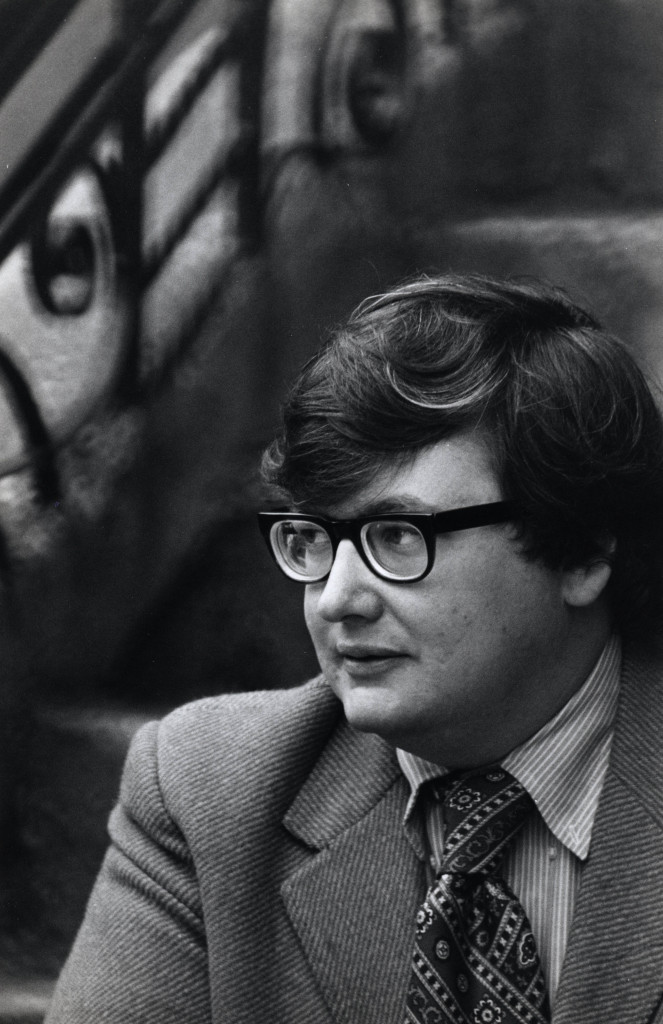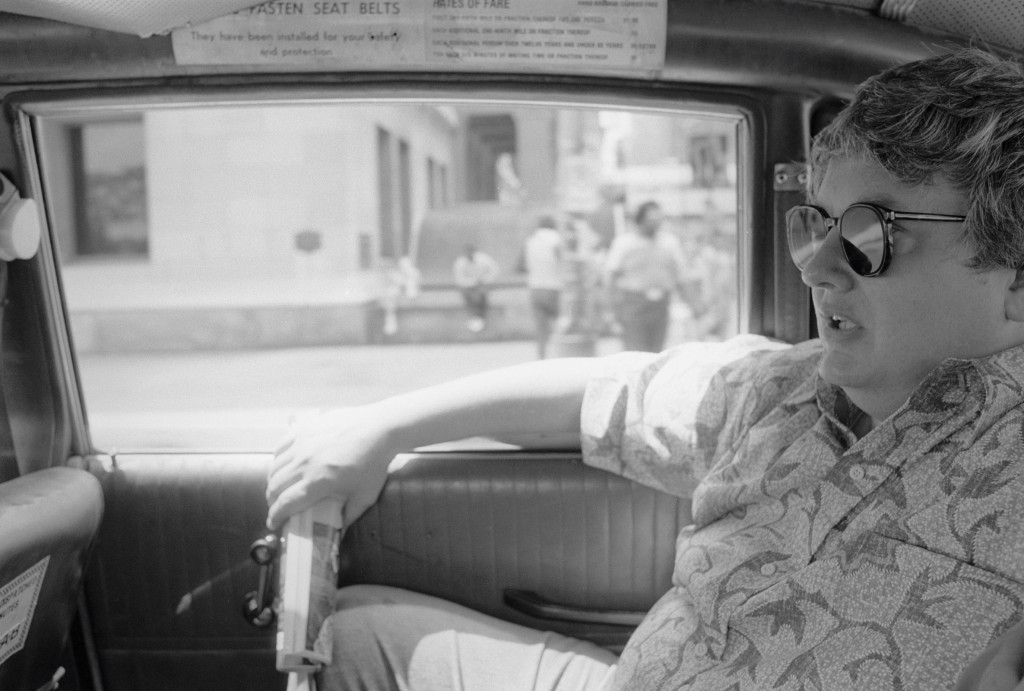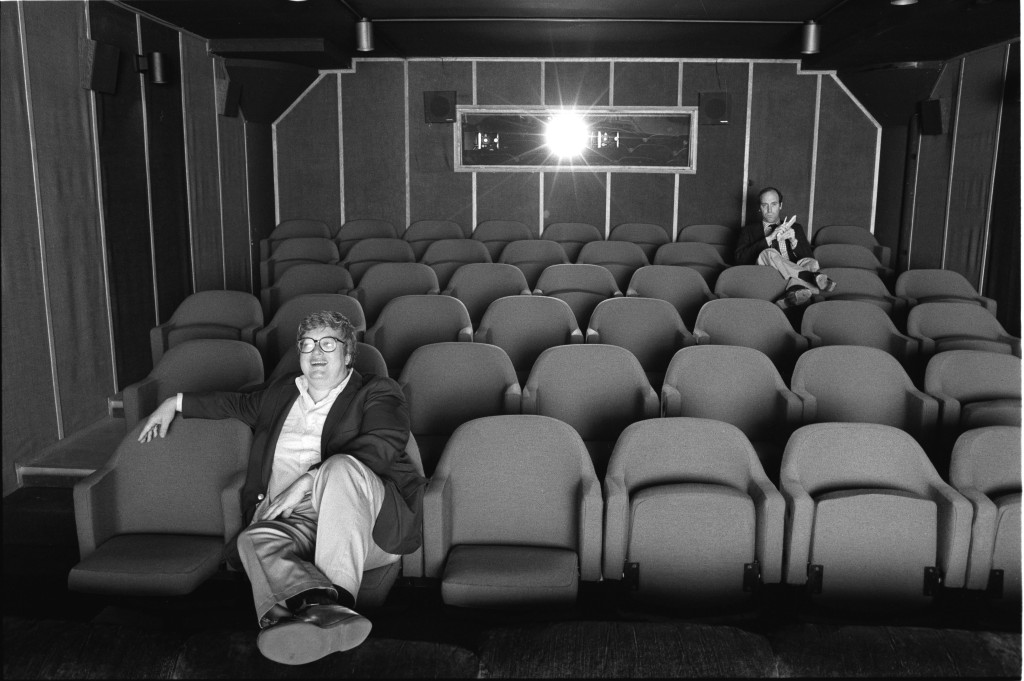Filmmaker Steve James made what are widely considered some of the most compelling documentaries ever — including the landmark “Hoop Dreams” and his recent film about gang peacemakers, “The Interrupters.” His new movie “Life Itself” (in theaters July 4th) documents the life — and graceful death — of beloved, Pulitzer-winning film critic Roger Ebert (who also happened to be one of “Hoop Dreams'” biggest champions). James spoke to Rico about Ebert’s legacy, his contentious relationship with on-screen co-critic Gene Siskel… and Siskel’s surprising wild side.
Rico Gagliano: So, you and Ebert, you’re both prominent in the Chicago film scene. Both of you are kind of civil rights champions. It doesn’t surprise me you collaborated on this film, but when did you first meet?
Steve James: Yeah, I first met Roger, in a sense, before he met me — which is when I saw his show back in the late ’70s.
Rico Gagliano: On which he and Gene Siskel would basically review movies.
Steve James: Yeah. I kind of tripped across it one Sunday afternoon on TV, and I was like, “Whoa, what is this?” And I remember my first thought was, “Two guys from Chicago, talking about movies?”
Rico Gagliano: Yeah, right. Why not Hollywood?
Steve James: Yeah! Or New York, or, you know, Paris, France — I mean, come on. But then as I watched the show, I got hooked by it, and I really sort of recognized its brilliance. Which was two very smart guys — very combative — and yet, the level of insight they were able to bring to the movies they were discussing, in a very short period of time, is not something that’s easy to do at all.
And when I moved to Chicago a few years after that, I started reading Roger in the newspaper. Because, you know, this was all before the internet, so you had to live in the city to actually read the paper.
Rico Gagliano: Oh my gosh, crazy.
Steve James: I know — hard to believe.
So I started reading his reviews, and I was first struck by the fact that I would get the Friday paper and there would be like eight reviews from him. All of them full-on reviews. It’s like, “Don’t they have another critic?” So I marveled at that. And he became one of my go-to guys in terms of movies, when they would come out every week.
Rico Gagliano: What do you think it is about his writing, among all critics, that led people to take his reviews so seriously?
Steve James: When Roger inherited this job – when it was really not a plumb job, back in 1967 – he loved movies, but he was by no means an expert. And he determined from the start — he said, basically, “Look, I’m gonna write reviews of these movies from the point of view of how they made me feel. Like, what did it do to me as a person sitting in a theater watching a movie.”
You always felt Roger, the person. You know, if he was writing about a romantic comedy, he might make an observation about love in his own life in a kind of wry and sometimes humorous way, or an insightful way. That was Roger. And I think that’s what people connected with. That and the fact that you never felt like he was looking down at you, the reader.
Rico Gagliano: Yeah — I think a key, actually, is that he was willing to say that he didn’t always get why a film was working. Like, there’s a clip in the film of his review of an Ingmar Bergman film, and he says it affects him – I think this is the quote – “In ways I don’t fully understand.”
Steve James: Exactly. He was so humble in the way in which he approached movies. I think it’s one of the reasons that filmmakers loved Roger. You always felt with Roger that he came to a movie humbly, wanting to love it. He might not, and then if he didn’t, look out.
Rico Gagliano: There’re whole books of what happened when he didn’t.
Steve James: Yeah. “I Hated Hated Hated Your Movie” is one of the collections.
Rico Gagliano: I grew up watching him, and I think a lot of people were aware of him — he was maybe one of the most visible critics ever. But I was still surprised to learn almost anything about his personality, especially at the beginning of his career. I always thought of him as my genial movie-nerd uncle, but he was this very hard-drinking Chicago newspaper man, kind of a tough guy.
Steve James: Well, you know, here’s the thing: Bill Mack, his friend from college days who remained his friend for 50 years, said that Roger was “the principal actor and director of his own movie of his life.” So when he went to Chicago and got a job — first as a beat reporter and then a critic — he took on the persona of what he thought a newspaper man was to be. And that included hard drinking until the wee hours of the morning, and telling stories, and swapping insults.
And then, of course, it became too much for him. But, you know, it steeled him and prepared him for what was to come in his life in a lot of ways. Including, of course, Gene Siskel.
Rico Gagliano: The kind of combative relationship he had with him.
Steve James: It was not, you know… gentlemanly. It was not, “Ah, well, I see you have a good point.” It was, “I’m gonna crush you.”
Rico Gagliano: Since you mentioned Siskel, the thing that blew my mind… you say in the film that Siskel was kind of adopted by Hugh Hefner, and he hung out with him on the Playboy Bunny jet?!!
Steve James: Yeah, the pictures are there to prove it.
Rico Gagliano: Had you any idea, before you made this movie, of that?
Steve James: No, and in fact, I couldn’t imagine anyone more unlikely than Gene Siskel to… as his wife Marlene says in the movie, Roger wrote “Beyond the Valley of the Dolls” and loved big-breasted women. But Gene actually lived the life for a while. Those pictures [in the movie of Gene] are actually from Hugh’s private collection.
Rico Gagliano: That is unbelievable.
Actually, I’m glad you brought up “Beyond the Valley of the Dolls.” This is, for those who don’t know, this crazy cult exploitation film by Russ Meyer that Roger Ebert scripted — I think the only movie he ever wrote.
Steve James: No, he wrote another one that didn’t get made. It was called “Beyond the Valley of the Super Vixens.”
Rico Gagliano: What did Roger think about the kind of lasting use of his signature line from that film, “This is my happening and it freaks me out“?
Steve James: Oh, I think he was thrilled, absolutely thrilled. In fact, Roger was so proud of that movie. He always loved to quote that Richard Corliss put it on his top ten list as one of the best films of the decade. And ignored what Gene wrote about the film, which was: “It’s about as sexy as a padded bra.”
Rico Gagliano: He just conveniently forgot that part.
Steve James: Yes. Well, Gene didn’t let him forget it.
Rico Gagliano: So there’s a lot of stuff in the film that’s about this kind of very funny — and in many cases heartwarming — stuff from his life. But he of course contracted cancer, he lost his voice and actually a good part of his face to the disease. And then, while you were filming, he got a diagnosis that meant essentially that you were making a film about his death.
So, now you have a finite time to learn from him. You have to pare down your questions to the most essential. How did you deal with that?
Steve James: Well, honestly, I didn’t do a particularly good job of prioritizing, because in fact we kept expecting that he was going to recover and go home. Because [Ebert’s wife] Chaz really believed that he was gonna get past all this. And, as he says in his memoir, she was like a wind pushing him back from the grave. She had rescued him so many times. So when she told me “We’re gonna get through this and he’s gonna be fine again,” I believed it. Just like she believed it.
Rico Gagliano: I found the movie very touching anyway, but I can also imagine… you know, this is kind of a testament to an important guy in your life. Is there anything that you left out of the movie that you now wish you had put in?
Steve James: There are a lot of things that could have been in the film. But the one thing that’s bedeviling me now, that would’ve been so easy to put in the film, but I didn’t, is that… in the interview I did with her, Chaz told us about how when she first met Roger, it wasn’t like he was some big star to her. She knew about the show, but when she watched the show, she actually agreed with Gene more than Roger.
Now, why is that not in the movie?! Right? I mean, it’d have been perfect.


